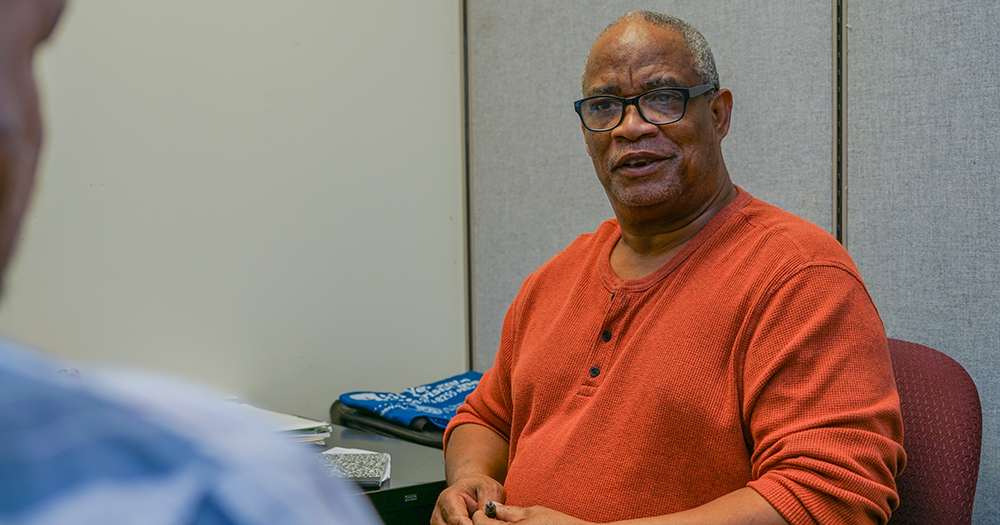The Difficult Journey of Rebuilding a Life
For most of us, moving into a new home is stressful and can stretch us to our limits. But for people who have experienced homelessness, especially if it’s been long term, the challenges are unique and often filled with anxiety and doubt. With you, we are able to provide the support our clients need, making this difficult transition a little easier, and with a higher level of success.
So what is it that’s so different?
Everything. From trying to survive day to day, to waiting to get housing, to coping with what comes next after moving into a home and all of the details that most of us are so used to. This journey comes with a lot of emotions from happiness and excitement to anxiety and even periodic depression.
They are not just moving into housing. They are rebuilding their well-being, together, with Caritas of Austin.
“It’s always good to know you’ve got someone to take the walk with you.”
Jeffrey Stephens
“Because homelessness has been criminalized, many distrust the systems. To rebuild that trust, we have to build rapport first and instill confidence in the process of getting housing,” says Jezzmen McPeters, Supportive Services for Veteran Families Program Manager at Caritas of Austin.
That process is complex on many levels. Infrequent communications with no phone or email, trying to find a job or file for disability, and getting transportation to job interviews and a job — all while navigating the process of getting into housing — can be overwhelming.
Most people are overjoyed the first time they walk into their apartment. Once they’ve settled in, however, they may be facing solitude and isolation. People who have literally been living on the streets or in a shelter are constantly surrounded by people. It’s very difficult for many to adjust and the temptation to invite friends to stay with them is strong. One of the biggest challenges is setting boundaries and breaking ties with people who have been part of their lives on the street but who could also jeopardize their successful transition.
THE KEY TO A SUCCESSFUL TRANSITION
Professional case managers provide life-changing support during this difficult transition period.

Case managers are vital to our clients’ success. They work in partnership with each client to create plans to reach goals, focusing on their strengths and addressing unique challenges. The plan can include goals of employment, building self-confidence, budgeting and more. “We also help them address barriers to getting housing such as mental health or substance use issues,” McPeters says.
“It’s always good to know you’ve got someone to take the walk with you,” says Jeffrey Stephens. A former Caritas client, Stephens is now on staff as a Peer Support Specialist working with veterans. “Rapport with your case manager is very important. They give you the drive to keep going.”
“Case managers give clients access to the tools they need,” Stephens continued. Tools such as money management, vocational training, access to the nearest food pantry, peer support, and outpatient treatment or groups for substance use, are just some of those. With access to recreational activities also helps to build a new support network.
Former client John Kirven said this about his case manager. “I cannot say enough about the life-changing power of having a case manager like Mr. Phil be my partner in helping me rebuild my life. He treated me with respect and dignity, like a fellow human.”
Because of the dedicated work of case managers, moving from homelessness to having a permanent home, and reintegration into our community, is a successful transition for hundreds of people every year.



